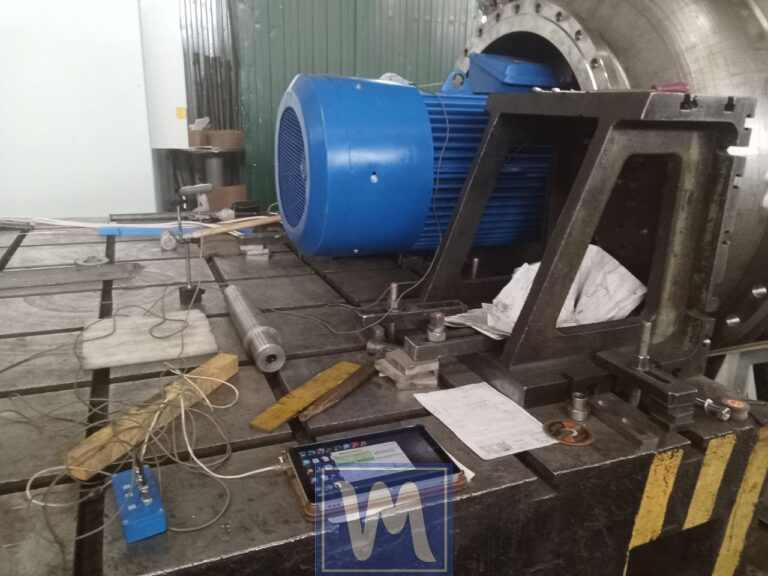
In the dynamic world of industrial equipment maintenance, fan balancing emerges as a critical procedure that cannot be overlooked. Fans, integral components found in numerous machines, exhibit high sensitivity to imbalance. Even the most minor deviations from optimal balance can trigger significant vibrations, which may lead to severe repercussions. Understanding the process and significance of dynamic fan balancing proves essential for maintaining operational efficiency and equipment longevity.
Imbalance in a fan arises when the geometric center of the shaft does not align with its center of mass. Notably, as the rotational speed of the fan increases, the demand for precise balancing escalates. Many factors can contribute to fan imbalance, including abrasive wear on blades, accumulation of dirt, loose assembly, misalignment of the impeller, temperature fluctuations, and loss of balancing weight, among others. Deformation of blades can also play a significant role in this imbalance.
The consequences of operating an imbalanced fan are multifaceted and detrimental. Increased vibrations can lead to heightened energy consumption and an accelerated failure rate of bearings. The structural integrity of the machinery can also be compromised, resulting in unplanned downtimes that can disrupt production schedules and incur substantial costs. Conversely, a well-balanced fan enhances equipment efficiency, reduces mechanical stress, prolongs the lifespan of components, and ensures quieter operation. Given these advantages, it becomes apparent that neglecting fan balancing during the maintenance process is not a prudent choice, regardless of whether one is dealing with a new installation or an older system.
It is important to recognize that fan imbalance is a leading cause of excessive vibrations within industrial settings. However, vibration issues can stem from other factors as well. Structural failures, insufficient alignment, and faulty bearings can contribute to the vibrations experienced in fan systems. Thus, it is imperative to engage experienced vibration diagnostic specialists who can comprehensively assess equipment conditions, identify root causes of increased vibrations, and develop appropriate solutions.
While many seek balancing services as a remedy for heightened vibrations, it is crucial to note that balancing should be the final step in a thorough maintenance procedure. Prior to balancing, a complete diagnostic of the equipment must be conducted to pinpoint any underlying issues, such as defects in coupling connections or inadequate shaft alignment. Only after addressing these deficiencies should balancing be performed, if deemed necessary. For instance, in a recent instance involving a dryer fan, vibration measurements revealed mechanical looseness that compromised the fan's support system. Correcting this issue eliminated the imbalance, thereby negating the need for further balancing procedures.
The procedure of balancing fans typically takes place on-site using the fan's own bearings. This method ensures maximum accuracy and efficiency, as it avoids the need for disassembling the equipment. Balancers adhere to stringent accuracy standards as outlined by ISO 1940-1-2007 based on the equipment's specific class. By utilizing innovative devices like the Balanset-1A, specialists can achieve precise results.
The dynamic fan balancing process encompasses several well-defined stages. Initially, vibration sensors must be strategically placed on the bearings of the fan shaft and in areas close to the housing. Installing the sensors perpendicular to the axis of the rotor is vital to capturing accurate readings. In the case of industrial radial fans, implementing a two-plane dynamic balancing process is essential to eliminating vibrations associated with the fan's impeller.
A typical balancing procedure begins with mounting a tachometer on a magnetic stand and applying reflective tape to the pulley. The sensors are then connected to the balancing device, accompanied by a laptop for real-time monitoring. After initiating the software and selecting the balancing options, operators enter critical information, including rotor details and test weights. The initial vibration level is recorded prior to adjustments.
Throughout the balancing process, test weights are strategically placed and adjusted in order to achieve optimal balance. Data is collected after each adjustment to verify that vibrations and phase differences align within acceptable parameters. This iterative process allows specialists to determine the amount and placement of correction weights, ensuring that the final balance is within stipulated guidelines.
Ultimately, the success of dynamic fan balancing is gauged through subsequent testing and verification. Should the software recommend additional adjustments, specialists may refine the balance further until an ideal state is achieved. By adhering to this meticulous sequence of operations, professionals guarantee that fans operate efficiently over the long term and remain reliable assets in industrial settings.
In summary, dynamic fan balancing stands as one of the cornerstones of effective industrial equipment maintenance. Its importance is underscored by the consequences of imbalance and the myriad benefits that proficient balancing practices can deliver. Embracing comprehensive diagnostic protocols prior to balancing ensures that root issues are resolved, allowing for true optimization of fan performance. With state-of-the-art equipment such as the Balanset-1A at their disposal, maintenance professionals are equipped to carry out balancing procedures that are both precise and effective, safeguarding the integrity of industrial operations for years to come.
You can read the full article by following this link https://vibromera.eu/example/impellers/ … -impeller/
